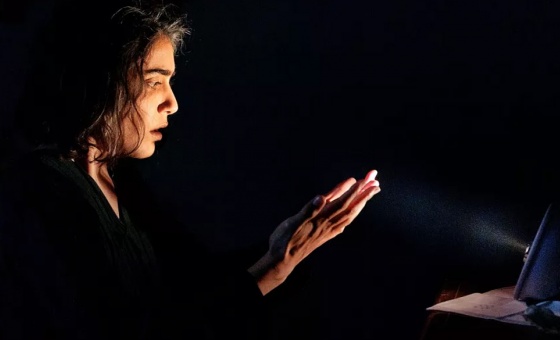This is the last article you can read this month
You can read more article this month
You can read more articles this month
Sorry your limit is up for this month
Reset on:
Please help support the Morning Star by subscribing here
PRIME Minister Sir Keir Starmer has been warned off making “ludicrous long-term commitments” that prolong the war in Ukraine ahead of an emergency summit with European leaders today.
The Prime Minister has vowed to “work to ensure we keep America and Europe together” prior to discussing how to respond to US President Donald Trump’s push for an end to the war in Ukraine at the summit called by French president Emmanuel Macron.
The UN estimates 12,456 civilians have been killed during the war that is set to begin its fourth year on February 24.
Sir Keir said: “This is a once-in-a-generation moment for our national security where we engage with the reality of the world today and the threat we face from Russia.
“It’s clear Europe must take on a greater role in Nato as we work with the United States to secure Ukraine’s future and face down the threat we face from Russia.
“The UK will work to ensure we keep the US and Europe together. We cannot allow any divisions in the alliance to distract from the external enemies we face.”
Ukrainian President Volodymyr Zelensky said a new European army might be needed in future after Mr Trump’s special envoy for Russia and Ukraine suggested on Saturday that European leaders would be sidelined from negotiations on a peace deal.
Mr Zelensky said: “We can’t rule out the possibility that America might say no to Europe on issues that threaten it.”
Washington has suggested Nato membership for Ukraine could be off the table and Mr Zelensky would have to cede territory to Russia as part of any deal to end the war.
US officials and Russian counterparts are expected to hold talks in Saudi Arabia before an anticipated meeting between Mr Trump and Mr Putin.
A Stop the War spokeswoman said: “Instead of increasing defence spending and making ludicrous long-term commitments to Zelensky, the government should be assisting the peace negotiations and spending our money at home, on restoring the winter fuel allowance, lifting the two-child benefit cap and generally fulfilling its commitments to improve the living standards of the working people of Britain.
“Continuing to push for Ukrainian membership of Nato and pouring money and arms into the country in order to keep an unwinnable war going is utterly reckless and will certainly fail.”
Campaign for Nuclear Disarmament general secretary Sophie Bolt said: “The £7.8 billion the British government committed to Ukraine since 2022 in lethal weaponry, has not kept the Ukrainian people safe and has instead contributed to prolonging this terrible conflict.
“Pouring billions more lethal weaponry into Ukraine — as well as the possibility of troop deployments — would be disastrous.
“With the continuing economic crisis in Britain and across Europe, it is obscene that governments should be contemplating increasing military spending.
“As the British government’s own watchdog, the Infrastructure and Projects Authority, has concluded that the replacement of Britain’s nuclear weapons system is ‘unachievable,’ it is time the government cut its losses and instead spent the remaining of at least £100bn on rebuilding crumbling public services and investing in sustainable energy sources.”
Sir Keir is also facing increased pressure to increase defence spending further than its current pledge to raise it from its current 2.3 per cent of gross domestic product to 2.5 per cent.
He reportedly held one-to-one meetings on Friday with the Chief of the Defence Staff Admiral Sir Tony Radakin and the heads of the armed services, who are calling for spending to increase to a 2.65 per cent share of the economy.
Business Secretary Jonathan Reynolds said yesterday that the need for increased defence spending is widely recognised, including by Chancellor Rachel Reeves.
The Chancellor will set out the multi-year plan for public spending on June 11, which is expected to set out how Britain will afford Labour’s pledge to boost defence spending.
A spokeswoman for Momentum said: “In the context of continued austerity, where Britain’s public services and local authorities underfunded, demands to increase weapons spending are reckless.
“The government must reject these calls and spend money on public services instead.”
France will host an emergency summit of European leaders today to discuss the situation in Ukraine, French foreign minister Jean-Noel Barrot said.
Sir Keir is expected to attend alongside Danish Prime Minister Mette Frederiksen, Polish Prime Minister Donald Tusk and other European leaders.
There are growing fears from European governments that the US could strike a deal with Russia without them, with talks expected in Saudi Arabia later this week.
Ukrainian government officials have said that Ukraine has not been invited to the talks.
Mr Zelensky said that he would “never accept any decisions between the United States and Russia about Ukraine, never.”
Kremlin spokesman Dmitry Peskov said that discussions between Russia and the US, breaking a three-year freeze, would be on peace not war.
He added: “This is a powerful signal that we will now try to solve problems through dialogue.”
Meanwhile, Russian strikes on Ukraine continue.
An attack on the city of Mykolaiv left 100,000 people without electricity, according to Mr Zelensky.
He warned that homes were also left without heating as temperatures in the region are set to drop to -10°C.
“This is not what those who really want to restore peace and prepare for negotiations do,” Mr Zelensky said.
He also ratcheted up his warnings and said that Ukraine had shared intelligence indicating that Mr Putin is preparing to train 150,000 troops, primarily in Belarus.
He also warned that Europe currently has fewer brigades than Russia, declaring: “The risk that Russia will occupy Europe is 100 per cent.”
During the Munich Security Conference on Saturday, Mr Zelensky called for the creation of a European army, saying the continent could no longer be sure of protection from the US.
But Polish Foreign Minister Radoslaw Sikorski cautioned against the term, saying: “We should be careful with this term because people understand different things.”
He said that while a unified European military was unlikely, he supported the EU developing its own defence capabilities.
Mr Sikorski said the EU was currently forming a reinforced brigade.
The three-day Munich conference saw intense diplomatic discussions on security, politics and economics, with top envoys from Syria, Saudi Arabia, Japan, South Korea and across Europe in attendance.
On the final day yesterday, Finnish President Alexander Stubb urged Europe to rearm Ukraine and increase pressure on Russia through sanctions and asset freezes.










